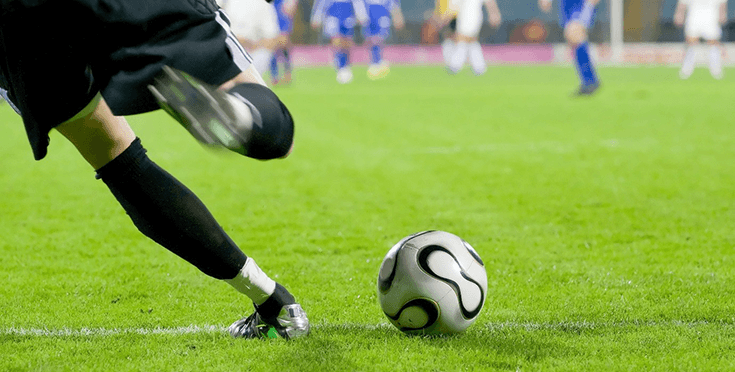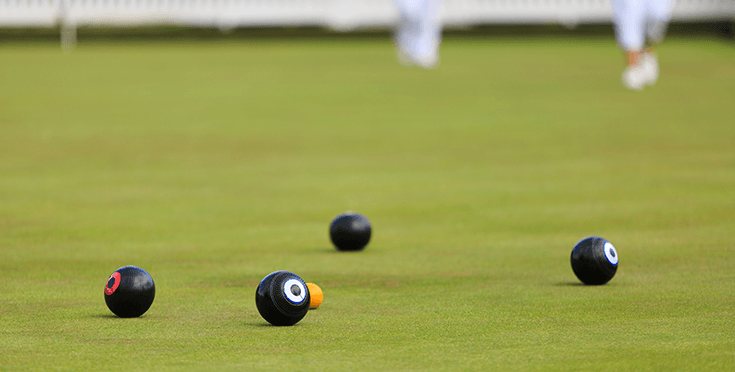Having a pitch maintenance plan is essential for groundskeepers at any level of the sport. Without proper care and attention, the quality of the pitch can slip; impacting the standard of play, increasing the risk of injury, causing financial loss for the club and even leading to games being cancelled or forfeited.
At Mawdsleys Pumps, we recognise the importance of keeping a high standard of pitch and have worked with sports teams of all standards to help keep their pitch in order, from semi-professional football pitches to rugby world cup pitches.
If you are a groundskeeper, owner, manager or volunteer that’s responsible for the upkeep of a football, rugby, cricket, golf, equestrian, bowls or other sports field; our top tips to sports pitch maintenance will help you take proper care of it all year round.
Why Is Pitch Maintenance So Important?
Proper pitch maintenance ensures that the surface consistently delivers a safe and professional experience for those playing on it, the key reasons why pitch maintenance is important are:
- Safety – Poorly maintained pitches increase the risk of injury to players, this can be due to rips and tears causing tripping hazards and also harder surfaces not absorbing as much of the impact as a soft well-maintained surface should a player fall.
- Reputation – Having a poor-quality pitch can land you with a bad reputation and lead to fines from league bodies should games have to be cancelled.
- Standard of Play – The standard of play is likely to decrease with the quality of the pitch.
- Cost – If not properly maintained, the cost of reviving a pitch from the poor condition can be considerable.
- Recovery Time – Without proper maintenance, pitches take longer to recover after matches.
How to Keep Your Pitch in Great Condition
Regardless of what sport your pitch is used for, or what level of the sport is played on it, there are several fundamental elements to proper pitch care which every groundskeeper should include in their pitch care routine.

Irrigation
Proper irrigation is one of the most important factors for keeping sports fields in a professional condition, offering several benefits to groundsman and players including:
- Encourages faster recovery of grass following pitch use.
- Smoother surface to prevent slips, trips, falls and bobbles.
- High-quality surface means balls will travel smoothly, something that’s particularly important for field sports such as golf, bowls and cricket.
- Higher impact absorbency, reducing the risk of injury.
- Grass health is improved and won’t break down as easily.
- Improved soil strength.
- Improved aesthetics.
Whilst rain can suffice for some of the wetter parts of the year, in the summer months, grass may die out without proper irrigation making surfaces hard and dangerous to play on; you can find out more about the effects of poor irrigation on sports fields in our blog post.
There are several different types of irrigation available to groundsman, all of which have their own benefits and drawbacks.
- Manual Watering – Watering the pitch manually is the cheapest method of irrigation. However, it is the most labour intensive and least effective, particularly if water supply or pressure is poor.
- Permanent Irrigation Systems – Usually a pop-up sprinkler, these systems are installed underneath the pitch and pop up to spray water at chosen intervals. Whilst effective, they are considerably more expensive than most irrigation systems making them financially unfeasible for lower tier clubs.
- Moveable / Travelling Sprinklers – Moveable or travelling sprinklers, sometimes referred to as water tractors, roll carts or rainmobiles are a mid-range option for irrigating a large surface area. They provide even distribution and pull themselves along a predefined route via a steel cable. Whilst effective, focussing on a particular area such as a goalmouth which needs more water than other areas can be a challenge without manual intervention.
- Portable Long Reach Irrigation System – Portable irrigation systems are a versatile and cost-effective irrigation solution which provides professional results, being one of the only irrigation systems that allow a rail gun to operate on a standard mains supply of water. As well as being easily moveable, they have a range of between 25 & 50 metres dependant on the mode, making them suitable for most surface.

- Every pitch is different and will require and several different factors will determine which irrigation system is most effective. If you’d like more information about what irrigation system is right for your surface, give us a call today on 0117 954 8030 or fill out a contact form and one of our team will get back to you.

Turf Care
Taking proper care of the grass that makes up the sports pitch is vital to keeping your pitch at its highest standard. How this is achieved will depend on the type of sport that’s being played on it, however, there are a few activities all groundskeepers should carry out to keep the pitch healthy:
- Ensure that weeds don’t take over, use pesticides to kill any weeds that may stint grass growth. Moss is one of the worst problems encountered by groundskeepers, this can be addressed with iron sulphate.
- Mow the turf as required, the recommended length of this will depend on the sport being played – for example, football pitch grass should be between 25 – 30mm, whereas rugby grass can be up to 70mm in height, providing greater cushioning for the players who are likely to fall with more impact.
- Overseeding is the practice of covering the entire pitch with large quantities of grass seed and fertiliser, this fills in patchy areas and can be used to rejuvenate areas which experience high levels of stress.
- Top dressing is a vital maintenance task that should be carried out annually in most cases, top dressing is undertaken in order to improve soil nutrients and pitch health; you will need a professional soil analysis to ensure top dressing can be properly achieved.
- Use fertilisers as well as regular watering of the turf to encourage the growth of healthy grass.
 Drainage
Drainage
Equally as important as proper irrigation is suitable sports pitch drainage to remove any excess water caused by excessive rainfall, overplaying, not giving the pitch time to recover after matches, improper irrigation and location of the pitch, for example, if it sits at the bottom of a hill or slope it will be subject to more water damage.
Without the infrastructure in place to allow for water to flow off, be absorbed by the surface or removed, waterlogging can occur. Not only does this render the surface unusable but can also cause serious damage to the grass and soil which makes recovery time longer.
Where budgets allow, the most effective methods of preventing waterlogging and aiding draining is through the construction of a primary drainage system consisting of a network of pipes, vertical drains and lateral drains which is then backed up by a secondary drainage system which can include sand slitting, and banding, gravel band drainage and mole ploughing.
If your pitch does become waterlogged, standing water can be pumped away efficiently with a sump pump if you require a pump to remove water from your pitch then call Mawdsleys today on 0117 954 8030.
Experts in Sports Field Irrigation
At Mawdsleys, we’ve worked with groundsman throughout every level of sports, from amateur football clubs to international rugby teams.
Our portable long reach irrigation system is trusted by clubs up and down the country to provide cost-effective, efficient and reliable irrigation for their pitch. For more information, call one of the team today on 0117 954 8030 or fill out a contact form and we’ll get back to you.

